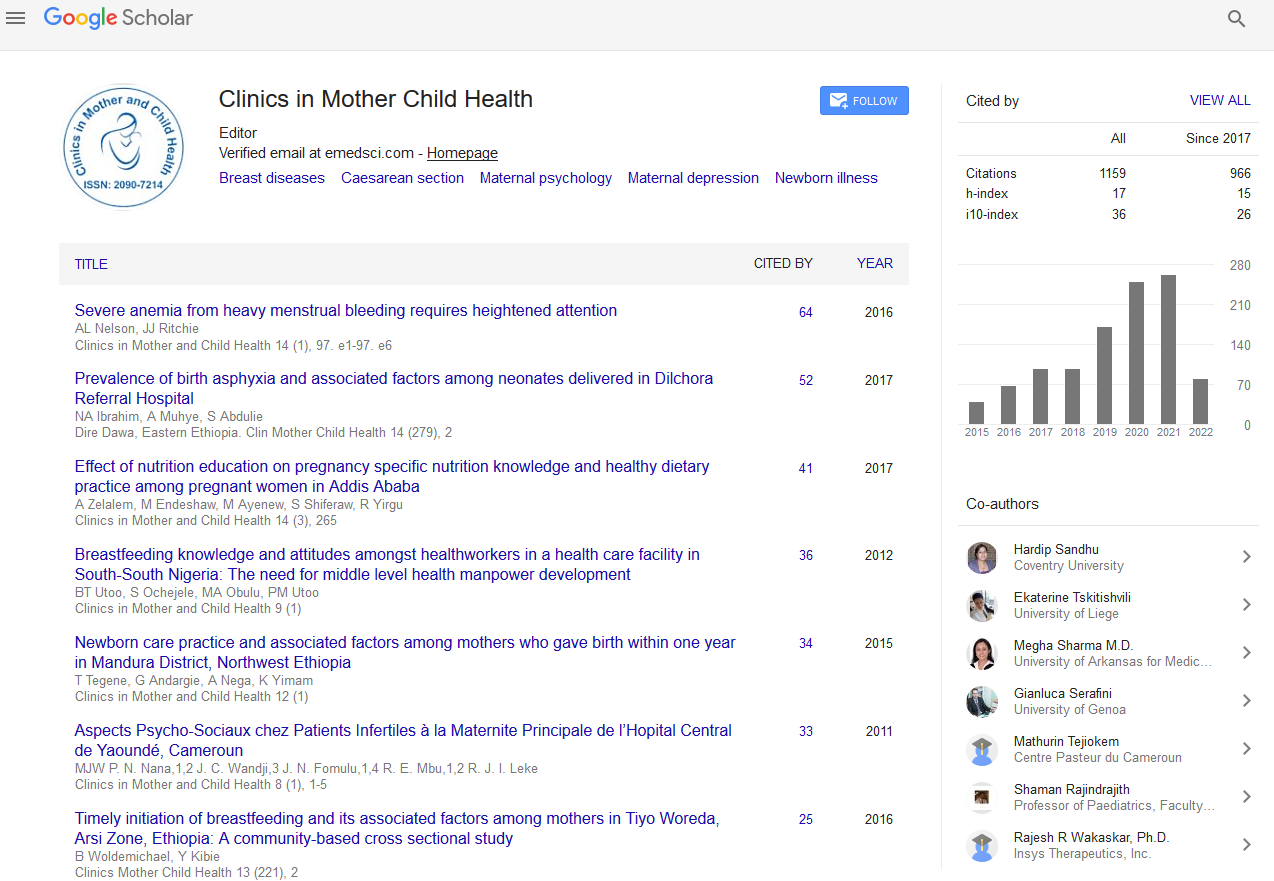Indexed In
- Genamics JournalSeek
- RefSeek
- Hamdard University
- EBSCO A-Z
- Publons
- Geneva Foundation for Medical Education and Research
- Euro Pub
- Google Scholar
Useful Links
Share This Page
Journal Flyer

Open Access Journals
- Agri and Aquaculture
- Biochemistry
- Bioinformatics & Systems Biology
- Business & Management
- Chemistry
- Clinical Sciences
- Engineering
- Food & Nutrition
- General Science
- Genetics & Molecular Biology
- Immunology & Microbiology
- Medical Sciences
- Neuroscience & Psychology
- Nursing & Health Care
- Pharmaceutical Sciences
Abstract
Relationship between Sleep Habits and Daytime Sleepiness, Inattention, and Aggressive Behavior among Taiwanese Kindergarten Children
Objectives: Sleep is a physiological process essential to life. The aim of this study is to investigate the association between demographic factors, sleep habits, and behavior in Taiwanese preschool children.
Methods: This is a cross-sectional study conducted between February 2012 to April 2012. Children aged 3 to 6 years (mean age=4.59 years; 50.83% girls) were recruited from certified public or private preschools in Taiwan. Using stratified random sampling, we distributed 1,750 copies of a self-designed questionnaire and collected 1,204 effective samples. Primary caregivers completed the questionnaire by providing information about the sleep habits and behavior of their children.
Results: The preschool children’s behavior, ranked from high to low frequency, were inattention (close to the “sometimes to usually” category), daytime sleepiness (close to the “sometimes” category), and aggressive behavior (close to the “never” category). Preschool children who were 6 years old (F=15.98, p<0.001) and girl (t=-3.87, p<0.01) had longer attention spans than 3 or 4 year olds and boy, respectively. There were no significant differences between ages and sex for daytime sleepiness and aggressive behavior. Multiple regression analysis revealed that the preschool children with less daytime sleepiness, longer attention spans, and less aggressive behavior were those who had slept more than 10.01 hours at night, went to bed before 9:00 p.m, watched television less than one hour per day on weekdays, and caregiver’s education ≥ college.
Conclusion: Favorable sleep habits are crucial for preventing daytime sleepiness, inattention, and aggressive behavior in preschool children.


